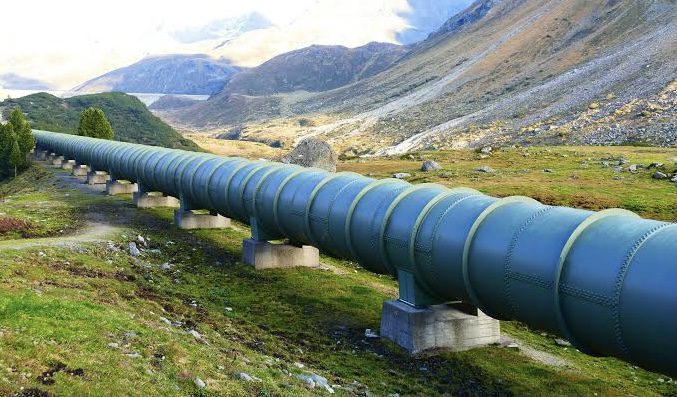BY FESTUS OKOROMADU
As part of efforts to ensure the speedy completion of the ongoing Nigeria-Morocco gas pipeline project, the Federal Government has signed four different Memoranda of Understanding with Morocco, Cote d’Ivoire, Liberia, Benin, and Guinea.
The tripartite MOUs were signed on behalf of the government by the Nigerian National Petroleum Company Limited and the Office National des Hydrocarbures et des Mines of Morocco on one hand, and the Société Nationale des Opérations Pétrolières of Cote d’Ivoire, the National Oil Company of Liberia, the Société Nationale des Hydrocarbures of Benin, and the Société Nationale des Pétroles of the Republic of Guinea, on the other hand.
The Nigeria-Morocco gas pipeline is a 1,672km long project designed to transport gas produced in Nigeria and other West African states to Europe.
It is expected to be a bolster to gas production and export in Nigeria as the proposed pipelines connect Nigeria to every coastal country in West Africa terminating in Tangiers, Morocco, and Cadiz, Spain.
A statement issued by NNPCL spokesperson, Garba Deen Muhammad, said the MoUs were signed at the Economic Communities of West Africa States headquarter in Abuja.
The signings took place on the sidelines of the Steering Committee meeting of the Nigeria-Morocco Gas Pipeline Project, which was attended by representatives from ECOWAS and all the participating countries, including Nigeria, Benin, Togo, Ghana, Côte d’Ivoire, Liberia, Sierra Leone, Guinea, Guinea-Bissau, The Gambia, Senegal, Mauritania and Morocco.
Once completed, the project would enhance the monetization of the natural gas resources of the affected African countries and also offer a new alternative export route to Europe.
“This significant infrastructure project will contribute to accelerating access to energy for all, improving the living conditions of the populations, integrating the economies of the sub-region, and mitigating desertification.
It will achieve these goals through the provision of sustainable and reliable gas supply that aligns with the continent’s new environmental commitments, while providing Africa with a new economic, political, and strategic dimension,” NNPCL stated.
Director General of ONHYM, Amina Benkhadra, said that the gathering represented a progressive step in ensuring social and economic development through energy security and accessibility geared towards attaining total development of Africa by Africans.
In his remarks, the ECOWAS Commissioner for Infrastructure, Energy and Digitization, Sédiko Douka, said the gas pipeline project was significant as it would help strengthen the region’s electricity production/generation capacity, stimulate industrial and agricultural development, and contribute to the energy transition by using a source of energy that is cleaner than other fossil fuels.

